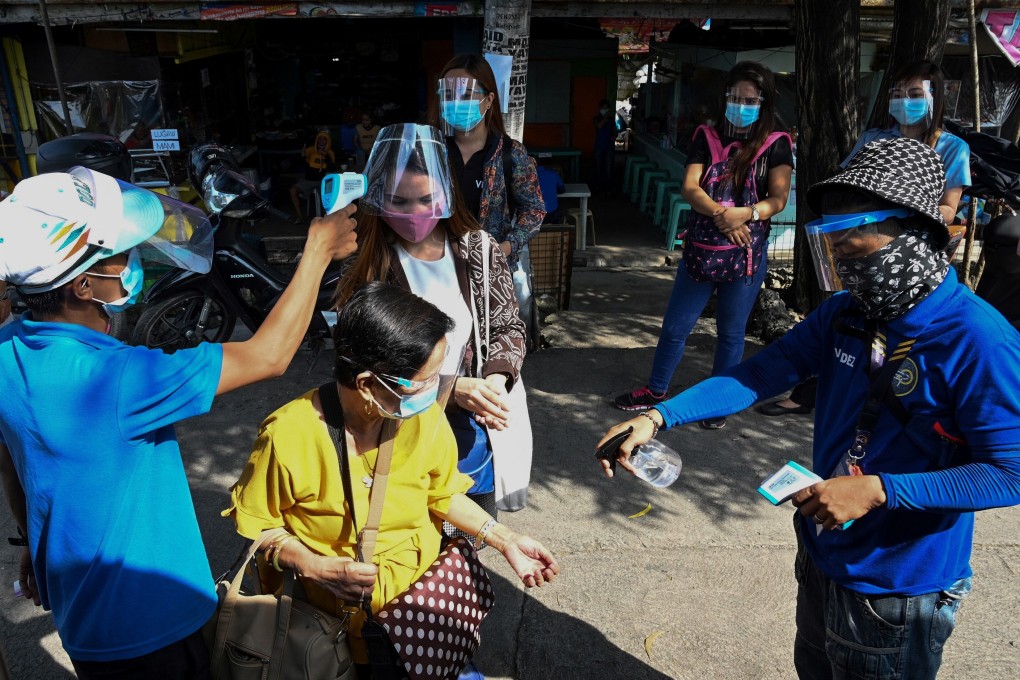Philippines’ President Duterte extends coronavirus state of calamity for another year
- State of calamity allows officials to draw emergency funds quickly anywhere in the country, and to control the prices of basic commodities like rice and cooking oil
- President Duterte also signalled that the country remains at the mercy of a vaccine, which is unlikely to be developed and distributed until the second quarter of 2021

The tough-talking president lashed anew at critics in his televised remarks late on Monday for accusing his administration of not doing enough to contain the outbreaks.
“What ‘enough’ do you want? There are hospitals, beds and funeral parlours. Everything is there,” Duterte said, singling out Vice-President Leni Robredo, who leads the opposition.
“You know Leni, if you want, if you really want to do away with Covid, let’s spray the Philippines or Manila over with pesticide to kill all … The only thing that we can do, really, is to wear a mask, wear a face mask, and that’s it and wait for the vaccine.”
The state of calamity in place until September 2021 will be used mainly to draw emergency funds quickly anywhere in the country. Officials can also control the prices of basic commodities like rice and cooking oil under such a state of calamity.
Quarantine restrictions such as social distancing remain as they are now.